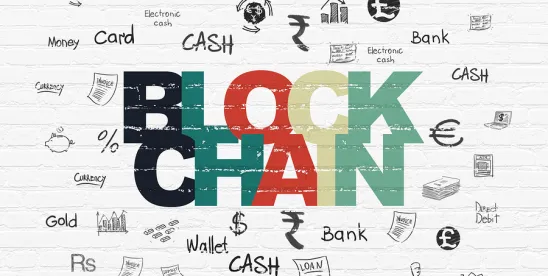There is a lot of buzz around blockchain technology and its potential to revolutionize a wide range of industries from finance and health care to real estate and supply chain management. Reports estimate that over $1.4 billion was invested in blockchain startups in 2016 alone, and many institutions and companies are forming partnerships to explore how blockchain ledgers and smart contracts can be deployed to manage and share data, create transactional efficiencies, and reduce costs.
While virtual currencies and blockchain technology in the financial services industry have been the subject of significant debate and discussion, blockchain applications that could transform the energy industry have received comparatively less attention.
ENERGY WEB FOUNDATION LAUNCHES PUBLIC TEST OF ITS ENERGY BLOCKCHAIN NETWORK
-
The Energy Web Foundation (EWF) has opened the doors to its blockchain network. The blockchain test platform, codenamed “Tobalaba,” was first released in private in early October, and is now available to the public for testing through EWF’s Github. The hope is that startups and blockchain developers will develop decentralized applications using the network and provide feedback and suggestions, which will be considered for future test builds.
-
As EWF notes in its recent press release, protecting user privacy and information is one of the major challenges for an energy industry-specific blockchain network. EWF has addressed this challenge by introducing a new concept referred to as “compliant privacy,” which allows all smart contracts and transactions on the blockchain network to be visible only to recognized authorities on the network, while also protecting the private keys of all network users. Building on the “proof of authority” consensus mechanism, each of EWF’s affiliates serves as a network validator, and these validators are able to agree upon the standards and rules governing the network. The hope is that more validator nodes will be added as additional companies join the EWF.
-
As reported in prior issues, EWF has been working with the blockchain developer Grid Singularity to develop its open-source, energy-specific blockchain platform, which, at launch, will be designed to process up to one million transactions per second and support a wide range of energy applications. Once operational, the platform will be maintained by EWF and its affiliates.
-
The Tobalaba network will enter beta phase in the spring of 2018, with plans for full implementation the following year.
PILOT PROJECT LAUNCHES TO USE ENERGY STORAGE AND BLOCKCHAIN TO BALANCE THE GRID
-
TenneT, the national transmission system operator of the Netherlands, announced the start of a pilot project to test the use of blockchain technology to stabilize and balance the power grid.
-
The pilot will rely on a pool of Sonnen home energy storage systems to absorb and discharge power and will use blockchain software to integrate the home energy storage systems into Tennet’s grid. The aim is to use blockchain and the integrated home energy storage systems to help manage congestion and limit the need for curtailment of renewables.
-
This partnership between TenneT and Sonnen was announced in May 2017, and the pilot project formally launched earlier this month. The pilot phase is expected to run until the middle of 2018.
AT COP 23, THE CLIMATE LEDGER INITIATIVE FOCUSES ON HOW BLOCKCHAIN CAN SUPPORT PARIS AGREEMENT
-
At a side event to the COP23 meetings in Bonn, Germany, the Climate Ledger Initiative (CLI), partnering with the United Nations Framework Convention on Climate, organized a hackathon to explore ways blockchain and distributed ledger technology (DLT) can support the Paris Agreement’s climate goals.
-
CLI is an international, multi-stakeholder initiative focused on the intersection of climate change and DLT with a mission to accelerate climate action. Participants at the CLI hackathon were presented with several specific challenge areas, including identification and tracking of emissions, carbon pricing, distributed energy, sustainable land use, and sustainable transport, and encouraged to develop blockchain or DLT-based solutions.
-
The event also spurred discussion around blockchain or DLT use cases to (i) enhance the UN’s Reducing Emissions from Deforestation and Degradation program, (ii) provide more transparency regarding greenhouse gas emissions, and (iii) monitor progress in implementing Intended Nationally Determined Contributions under the Paris Agreement.
BLOCKCHAIN PLATFORM FOR COMMODITIES TRADING UNDER DEVELOPMENT
-
Several large trading houses, energy companies, and banks have come together to develop a blockchain-based platform designed specifically for physical energy commodities trading.
-
According to a recent article, the platform will be designed to manage energy transactions from the execution of the initial trade through to final settlement. The goal is to open the platform up to the commodity industry for testing, with the hope of eventually moving the industry from traditional paper contracts and record-keeping to blockchain-powered system relying on smart contracts and electronic storing of documents and information.
-
The development of this energy trading platform represents the latest step by banks and commodities traders to consider a shift from traditional paper record-keeping to blockchain-based systems. The platform is expected to be operational by the end of 2018.



 />i
/>i

